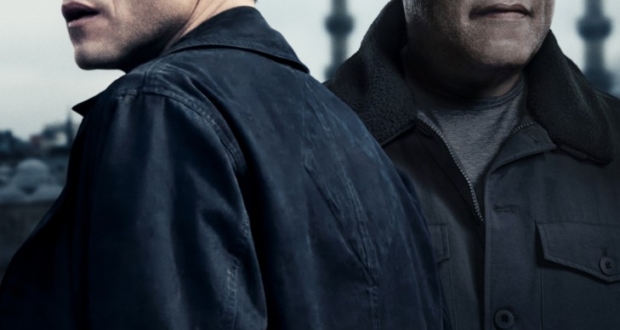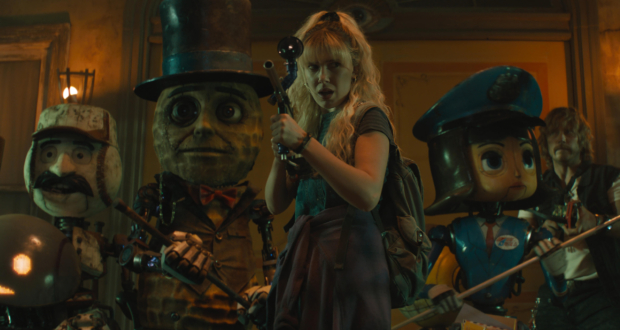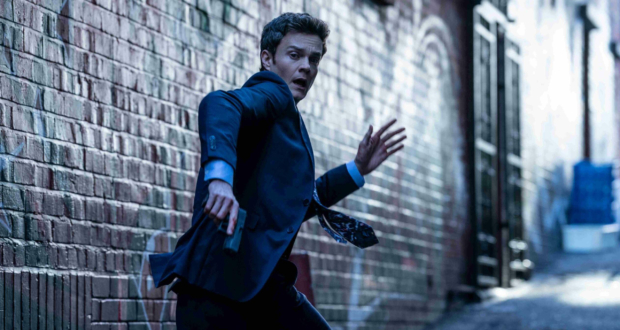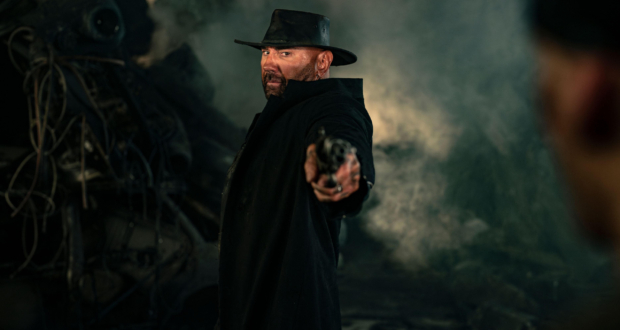
Director(s): Sarah-Violet Bliss, Charles Rogers
Writers: Sarah-Violet Bliss, Charles Rogers, Brian Lannin
Starring: Bridey Elliot & Clare McNulty
[springboard type=”video” id=”1553679″ player=”tmbg001″ width=”599″ height=”336″ ]
Synopsis: A comedy about Allie and Harper and their needlessly difficult journey to the beach.
Bridey Elliott and Clare McNulty are relatively new to the scene, but their work as a comedy duo feels well practiced. They have a Joan Rivers quality with Broad City chemistry. Elliott and McNulty don’t give off a whiff of prepackaged stardom and they are perfect for comedy without borders, laughs without a conscience, and as loosey goosey performers.
Bridey Elliott has got funny in the blood. Her take on Harper, an “artist” living post-grad life on her father’s considerably large dime, is something like a millennial in the mold of Anna Faris’ airhead pop star in 2005’s Just Friends. Not only does she say all the wrong things, she says them with conviction. Clare McNulty seems cool, too and while her star doesn’t shine as brightly as Elliott’s, she has an easy familiarity that makes her transgressions slightly forgivable. She looks like someone I know from my hometown, and my hometown had a fair share of entitled, but well-meaning screw ups (#me). In short: this duo straight clicked, y’all. But the duo behind Fort Tilden—filmmaking partners Sarah-Violet Bliss and Charles Rogers—don’t do their stars justice.
Harper (Bridey Elliott) and Allie (Cary McNulty) live together in a beautiful apartment in the ‘Burg. Allie is making plans to work for the Peace Corps, heading to Liberia in hopes of injecting purpose into her life. Harper is busy doing nothing, letting her artistic career come to her along with the money her dad frequently sends. When Harper and Allie come across a couple of cute boys at a rooftop party, they make plans to meet for a beach day at Fort Tilden.
Fort Tilden is a fine movie for many reasons—a sharp script, it’s stars, and it’s adventurous nature. The ladies ride bicycles all over parts of New York City that don’t usually see the spotlight. Riding through Flatbush to get to the sandy beaches of Queens, this motor-less road trip movie is like a tour through ugly town. The grittiness is part of what makes Fort Tilden have some character. It could’ve trounced all over Manhattan, sucking up to the glitzier side of the Big Apple, but it went its own way. However, while trying to highlight just how clueless Harper and Allie are traversing South Brooklyn, Fort Tilden crosses over into some unsightly territory.
The ladies wander into a bodega and order iced coffees from a couple of Spanish women, but the concept behind iced coffee is lost in translation–hit a Starbucks everyone, jeez. When they don’t lock their bikes up, a young minority comes by and takes it. The joke is that Harper and Allie are stupefied enough to just watch it happen, but the unfunny joke is that outside of Williamsburg, your bike is not safe. Cabbies are constantly screwing them–hundred dollars to ride, white ladies. And Harper and Allie are legitimately scared of “the ghetto.” The unfortunate thing is, in Fort Tilden, they have a right to be. It reminded me of how Brian De Palma’s Bonfire of the Vanities couldn’t help being horribly racist in its overtly righteous attack on Manhattanite yuppies. Fort Tilden makes similar missteps in its lambasting of Williamsburgian millennials.
Insults are fired like out of a BB gun. Harper calls Allies friends “basic bitches,” “Minnie Mouse rats with makeup,” and “chapters in a book it’s okay to skip,” all in the same vitriolic breath. Are you laughing? I smirked–get ’em, girlfriend. But, unlike great comedies, the humor didn’t find any momentum, partly because of a proclivity for phony drama. Scenes like when Harper fights with an Indian cab driver because of her father’s possibly criminal business activities in India screams desperation. We are meant to feel sorry for Harper, but that doesn’t mean we should be forced to feel sorry for her. Harper and Allie are closer to Harry and Lloyd than Thelma and Louise. This movie gets sensitive when it needs to get dumber.
Allie, too, gets the same treatment. At one point, Harper tells her she needs to “confront life,” and I still don’t understand what it would mean for someone to confront life. It’s an empty phrase meant to make Fort Tilden something more than mean-spirited, but what’s the point if it doesn’t fit seamlessly into the production? Haven’t we learned anything from Mean Girls? Mean girls are funny–that’s what I learned. And, also, laughter is the best medicine for reality. If you aren’t laughing, you are crying. Fort Tilden does get to realer stuff organically, but the unjustified doses of pseudo-drama stomp on the breaks too often.
Sensitivity is overrated. Reflection is for the birds. Let Noah Baumbach handle the syrupy stuff. Allow Lena Dunham her stronghold on naked honesty. What Bliss and Rogers could’ve done—and almost do—is roast this generation like its the Friars Club. In the film’s climax—after Harper and Allie finally meet up the boys, only to find a couple of topless young ladies with tremendous breasts have tagged along—our ladies go off the deep end trying to regain control. Bikini tops disappear, awkward conversation ensues, and one of the most cringe worthy ocean sex scenes ever commences. To add insult to injury, Harper and Allie learn their beach companions are nearly a decade younger than them. Like an anvil on the head, we feel the weight of adulthood come crashing down. This isn’t “confronting life,” this is being confronted by life. This is the quiet misery Harper and Allie are full of, and we didn’t need a sappy serious scene to understand so. If Fort Tilden cared less about being responsible to its characters, and more about refining the balls crazy comedy it wants to be, we’d all have learned more valuable lessons.
I Give Fort Tilden 6 out of 10
-
TMB rates Fort Tilden - 6/10
6/10

























